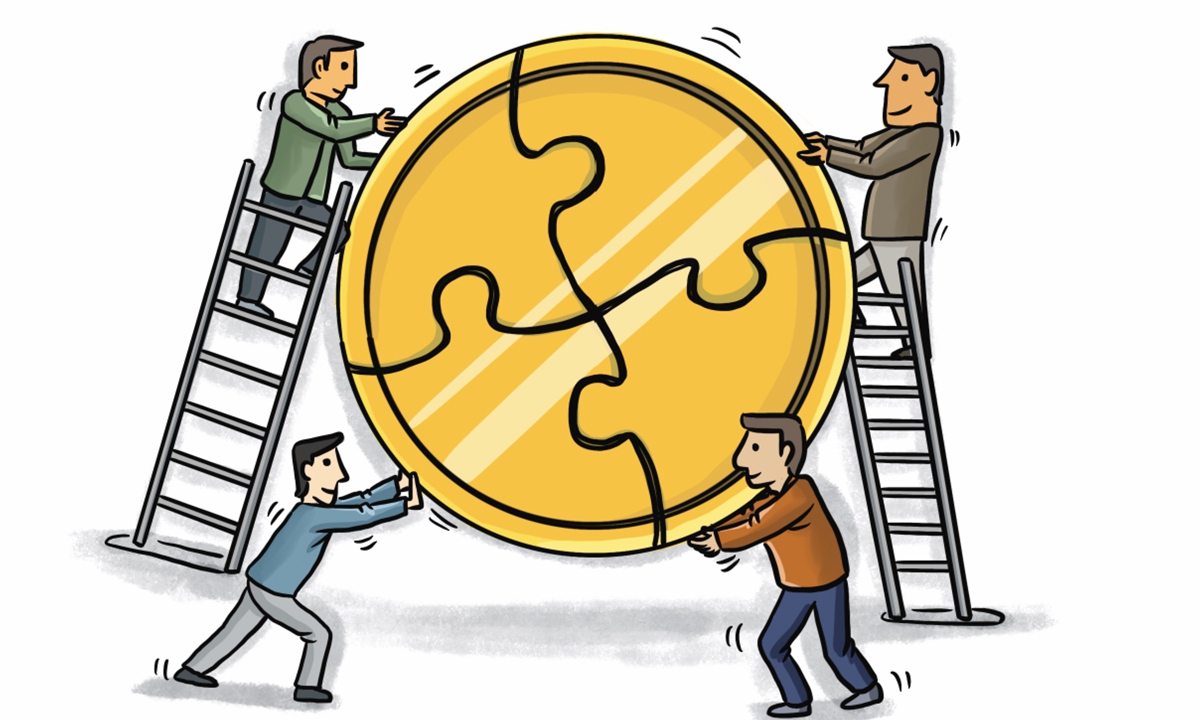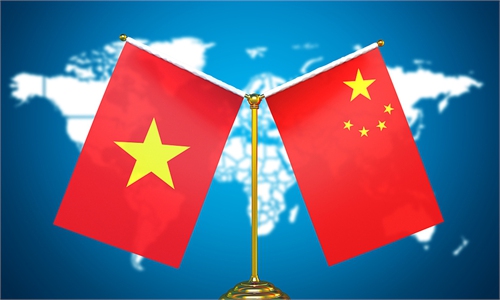COMMENTS / EXPERT ASSESSMENT
Asian economies would be better off without US interference

Illustration: Xia Qing/GT
Some Asian economies struggling to kickstart an economic rebound in the first five months have encountered another major risk: a resurgence of COVID-19 pandemic. As infections spike and new variants are found in India and Vietnam, local manufacturing, tourism and exports are facing new uncertainties and risks.
If the new wave of outbreak cannot be effectively put under control as soon as possible, the exports and other aspects of these economies will be hit hard. Market observers recently have even suggested that multinationals may soon consider moving their factories out of these economies and production capacity which earlier moved from China to Southeast Asian economies may return back to China.
Judging from current situation in Southeast economies, the resurgence as far appears relatively controllable. As long as restriction measures are taken, regional economies are not expected to follow the tracks of last year. Vietnam's business hub Ho Chi Minh City has reportedly imposed 15-day social distancing rules from Monday to curb COVID-19 spread.
In fact, regional economies had already begun to show a positive recovery trend before this wave outbreak. According to Vietnamese media outlets, the country has reached a year-on-year increase of 29.5 percent in the trade turnover in the first four months, with $206.5 billion - the highest in the past 10 years.
More importantly, sound regional cooperation could provide support for these economies to maintain the recovery momentum and endure this latest test. According to the Wall Street Journal, China's recent vaccination surge could accelerate the return of battered economies of Southeast Asia. At this juncture, it is imperative for regional economies to strengthen regional cooperation in fight against the virus and promote economy recovery.
Compared with the COVID-19 resurgence, the political pressure exerted by the US on the Asian economies is actually causing more damage and disruptions to their economies. Regional countries nevertheless do not want to be involved in the game of great powers; instead, what they prefer is to gain from economic cooperation.
While trade and investment data have proved that China and Asian economies have formed a deeply integrated win-win framework for cooperation, the political maneuver of the US has been repeatedly proved to be "blanket checks" serving its own national interests. For instance, despite India was facing a ferocious COVID-19 resurgence, the Indian External Affairs Minister's US visit last week seems did not obtain substantial help in his vaccine pursuit, leaving with only verbal promises.
It is expected that Asian economies will further focus on regional economic cooperation and shed off ill-intended political interferences from external parties, aiming for a robust collective recovery as soon as possible.
The author is an expert on Southeast Asia affairs at the National Institute of International Strategy under the Chinese Academy of Social Sciences. bizopinion@globaltimes.com.cn


